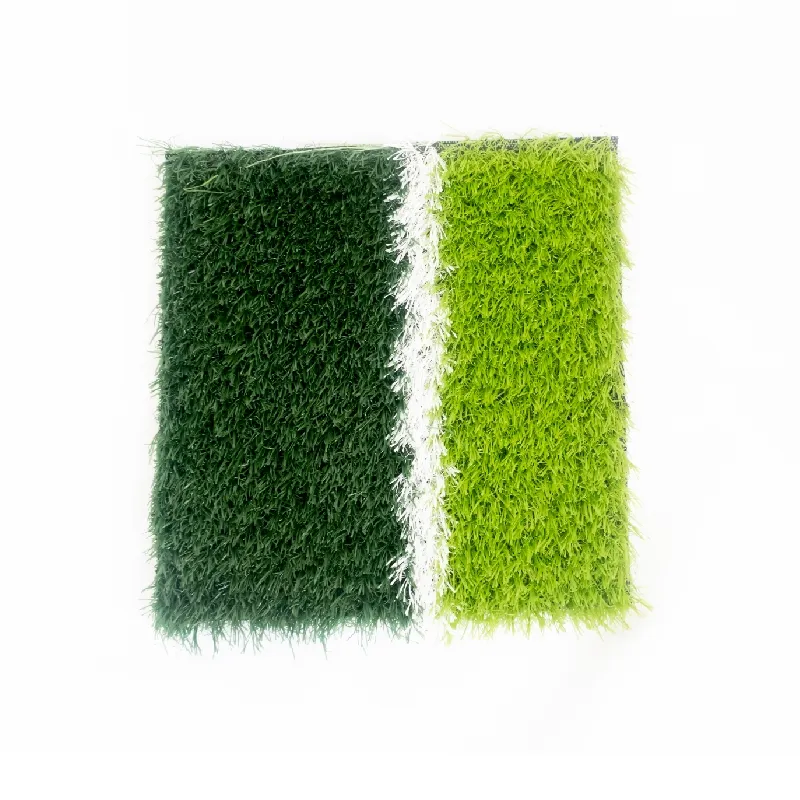
- Afrikaans
- Arabic
- Belarusian
- Bengali
- Czech
- Danish
- Dutch
- English
- Esperanto
- Estonian
- Finnish
- French
- German
- Greek
- Hindi
- Hungarian
- Icelandic
- Indonesian
- irish
- Italian
- Japanese
- kazakh
- Rwandese
- Korean
- Kyrgyz
- Lao
- Latin
- Latvian
- Malay
- Mongolian
- Myanmar
- Norwegian
- Persian
- Polish
- Portuguese
- Romanian
- Russian
- Serbian
- Spanish
- Swedish
- Tagalog
- Tajik
- Thai
- Turkish
- Turkmen
- Ukrainian
- Urdu
- Uighur
- Uzbek
- Vietnamese
laying artificial grass
Oct . 06, 2024 10:23 Back to list
Laying Artificial Grass A Comprehensive Guide for a Lush, Low-Maintenance Lawn
In recent years, artificial grass has gained immense popularity among homeowners, businesses, and community spaces alike. Whether for aesthetic purposes, water conservation, or low maintenance requirements, laying artificial grass can transform any environment into a lush and vibrant landscape. This guide will delve into the benefits of artificial grass, the preparation process, and the installation steps necessary for creating a beautiful, evergreen lawn.
Benefits of Artificial Grass
The primary advantage of artificial grass is its low maintenance. Unlike natural grass, which requires regular mowing, watering, and fertilizing, synthetic turf remains green and pristine with minimal effort. This is particularly beneficial for individuals living in areas with water restrictions or for those who lead a busy lifestyle.
Moreover, artificial grass is durable and resilient, capable of withstanding various weather conditions. It does not suffer from brown patches, weeds, or pest infestations that often plague traditional lawns. This means that once installed, it can last for many years, making it a cost-effective solution in the long run.
Additionally, artificial grass is an environmentally friendly choice. Many types are made from recycled materials, and using synthetic turf can significantly reduce water consumption. This is of particular importance in drought-prone regions where conserving water is essential.
Preparing the Area
Before laying artificial grass, proper preparation of the area is crucial to ensure the best results. Begin by marking the boundaries of the area where the grass will be installed. Use stakes or string to outline the desired shape.
Once you have defined the area, clear it of any existing vegetation, including grass, weeds, and roots. This can be done using a spade, shovel, or landscaping fabric. After clearing the area, it is essential to level the ground. Fill any low spots with soil and compact it to create a smooth, even surface.
Furthermore, it is recommended to install a weed barrier fabric to prevent any unwanted growth from coming through the turf. Secure the fabric with stakes to hold it in place.
.
Choosing the Right Materials
laying artificial grass

Once the area is prepared, it’s time to select the right artificial grass for your project. There are various types of synthetic turf available, each with different pile heights, colors, and textures. When selecting grass, consider factors such as usage, appearance, and budget. For instance, if the area will be used for children or pets, choose a more durable option that can handle heavy foot traffic.
You will also need the following materials
- Base Material Crushed stone or decomposed granite is typically used as a base layer. It provides excellent drainage and stability for the grass. - Infill This material is often made from sand or rubber and is spread evenly over the turf after installation to help keep the grass blades upright. - Adhesives and Seaming Tape These are used to secure the edges of the grass and ensure a seamless look.
Installing the Artificial Grass
Once you have all your materials and the area is prepared, it's time to install the artificial grass. Start by laying down the base material. Aim for a depth of about 2-4 inches and compact it well.
Next, unroll the artificial grass and lay it over the prepared area. Be sure to avoid any wrinkles or folds. If you are working with multiple pieces, make sure to align the grass fibers in the same direction for a more natural appearance. Cut the edges with a utility knife for a perfect fit.
Once the grass is in place, secure the edges using landscape staples. Apply adhesive and seaming tape to the seams to prevent any lifting or separation over time.
Finally, spread the infill evenly across the turf, following the manufacturer's recommendations. This step is crucial as it provides stability and helps maintain the grass's appearance.
Conclusion
Laying artificial grass is an excellent way to achieve a beautiful, low-maintenance lawn. With careful planning, preparation, and installation, you can enjoy a vibrant landscape that enhances your property’s value and aesthetics. Whether for recreational areas, commercial spaces, or private gardens, artificial grass offers a green solution that is both practical and sustainable. By following the steps outlined in this guide, you can create your very own lush oasis that will last for years to come.
-
The Benefits of Artificial Turf for Indoors
NewsJul.15,2025
-
How Artificial Grass Suppliers Ensure Quality Products
NewsJul.15,2025
-
Artificial Grass and Pets: A Space for Relaxation
NewsJul.08,2025
-
Balcony & Outdoor Decoration with Artificial Grass
NewsJul.08,2025
-
Best Indoor Artificial Grass for Home
NewsJul.07,2025
-
Best Pet Turf for Dogs: Safe & Durable Artificial Grass Options
NewsJul.07,2025
Products categories









